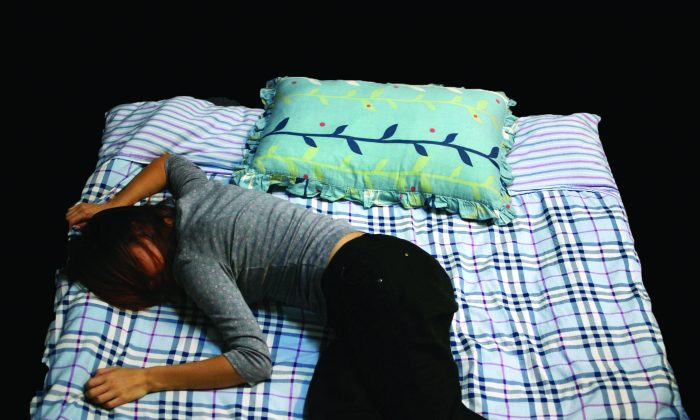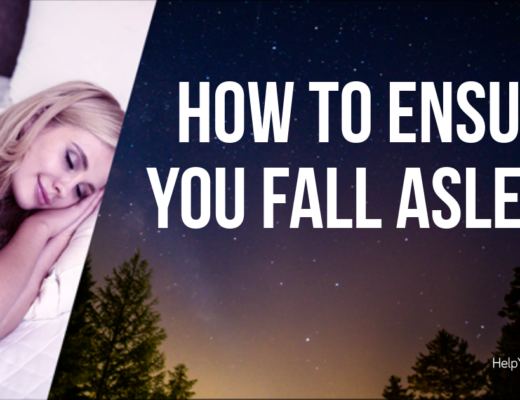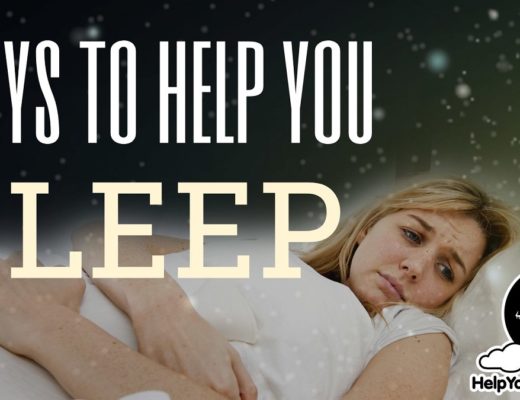I used to sleep like a baby, but that all changed early in my twenties. I suddenly found myself tossing and turning in bed, unable to stay still once I was asleep and waking up several times throughout the night because I couldn’t stop moving. In my quest to get to the bottom of my sleep problems, I learned I wasn’t alone: over forty-million Americans suffer from some sort of difficulty preventing them from getting a night of deep sleep. Thankfully, there are simple solutions, and I’d like to share them with you.
So what are the best ways to stop moving in your sleep?
DIET
The Caffeine Trap
 Did you know that caffeine can affect you for up to eight hours? Most people don’t, and it’s a huge window of time that could make the difference between a restful night and an evening-long struggle. As a general rule of thumb, it’s best to avoid caffeine after lunch, be it in coffee, soda, or some other source. It’s not a hard and fast rule, but because caffeine impact search of us differently it’s an easy guideline to work with.
Did you know that caffeine can affect you for up to eight hours? Most people don’t, and it’s a huge window of time that could make the difference between a restful night and an evening-long struggle. As a general rule of thumb, it’s best to avoid caffeine after lunch, be it in coffee, soda, or some other source. It’s not a hard and fast rule, but because caffeine impact search of us differently it’s an easy guideline to work with.
You may want to do some research about all the foods and drinks your consuming to check for caffeine. Any amount, big or small, can leave you unable to relax when the time comes for sleep. Even tea, which we often associate with relaxation and calm, has enough caffeine to disrupt your night.
Avoid Late Dinners
 It might be fun taking in a late dinner and a movie, but the digestive process can wreak havoc on your body when you’re lying down. Stomach acid can rise to your throat, causing uncomfortable heartburn, to say nothing of the more obvious problems that can occur “down below.” It’s best to give yourself at least two hours after you’ve eaten to give your body time to properly digest before climbing into the sack.
It might be fun taking in a late dinner and a movie, but the digestive process can wreak havoc on your body when you’re lying down. Stomach acid can rise to your throat, causing uncomfortable heartburn, to say nothing of the more obvious problems that can occur “down below.” It’s best to give yourself at least two hours after you’ve eaten to give your body time to properly digest before climbing into the sack.
It’s also worth your time and effort to avoid eating processed foods for the last meal of the day. The amount of sugar found in them will make it nearly impossible for you to sit still, let alone lie down.
ENVIRONMENT
Unplug Your Electronics
 Light in all forms prevents your body from releasing melatonin, a chemical that promotes sleep. That’s why, in the hour before bedtime, you should dim the lights in your home and avoid using computers, tablets, phones, televisions, or any electronic device with a lit screen. Turn off or cover such items in your bedroom, too (such as digital clocks). Even brief exposure to electronic lights can negatively affect the depth of your sleep and keep your brain active.
Light in all forms prevents your body from releasing melatonin, a chemical that promotes sleep. That’s why, in the hour before bedtime, you should dim the lights in your home and avoid using computers, tablets, phones, televisions, or any electronic device with a lit screen. Turn off or cover such items in your bedroom, too (such as digital clocks). Even brief exposure to electronic lights can negatively affect the depth of your sleep and keep your brain active.
If you’re like me and are practically glued to your smartphone, you may have noticed an influx of apps in the past few years that allege to alter the light coming from your screen so that it doesn’t stimulate your brain and keep you up at night. They’re nice in theory, but sadly they’re less effective than simply avoiding your phone before going to bed.
It’s important that you are able to block out all sources of light, no matter how slight, because not doing so will prompt your brain to stay awake. If you find your current arrangement makes this possible, try wearing a sleep mask. They’re designed to be minimal so you shouldn’t feel uncomfortable when you slip it on.
Keep Your Bedroom Tidy
 Our brains are naturally inclined to keep things organized in a way that makes sense to us. Believe it or not, a messy room or an unmade bed is enough to keep you awake at night. Keeping your sleep environment orderly is paramount to relieving stress and anxiety before you enter dreamland. If you’re worried that your hectic schedule won’t allow you the time to get everything tidy at once. You can start small and focus on making your bed everyday instead.
Our brains are naturally inclined to keep things organized in a way that makes sense to us. Believe it or not, a messy room or an unmade bed is enough to keep you awake at night. Keeping your sleep environment orderly is paramount to relieving stress and anxiety before you enter dreamland. If you’re worried that your hectic schedule won’t allow you the time to get everything tidy at once. You can start small and focus on making your bed everyday instead.
LIFESTYLE CHANGES
Get Out of Bed
If you haven’t fallen asleep half an hour after hitting the hay. It’s best if you get out of bed and do something else that might help tire you. Try reading a book or listening to soft music (avoid anything thing bright light, like watching television). The idea is to avoid associating lying in bed with being awake, which can cause insomnia in the long term. Once you feel drowsiness setting in, slink back off to bed.
This also means you should try to avoid spending time in bed when you aren’t sleeping as much as possible. This was hard for me personally because I love nothing more than to stretch out in bed. But spending your waking hours under the covers dulls your body’s response to lying in bed. It also makes it more difficult to enter a sleep state.
Deal With Anxiety
If you’re lying awake with troubling thoughts bouncing around in your head, find a way to get them out. A simple way to do this is with a journal. Get out of bed, grab a pad and pen, and get those thoughts down on paper. If that’s not your thing, controlled breathing exercises, such as inhaling for a count of 4, holding your breath for a count of 4, and exhaling for a count of 8, help relax your central nervous system and slow your thoughts.
On a similar note, a useful habit to pick up during your waking hours—or even just before bed—is simple meditation. It doesn’t require any sort of spiritual affiliation or belief, nor do you need any special equipment or guidance. The simplest way to meditate is to sit cross-legged on the floor or in a chair. Also close your eyes, and do the breathing exercise above, focusing on the feeling of your breath entering and exiting your body. It’s an incredibly relaxing experience physically and mentally.
Rethink Your Sleep Schedule
You may think that a strict sleep schedule is setting alarms and getting up at the same time every day. But the flip side of the coin is going to bed only when you’re tired and not because you feel it’s “the right time” to sleep. The exact time you begin to feel tired may not always be consistent. But you’ll be reaching a sleep sooner once you’re in bed and spending less time awake staring at the ceiling.
This does mean giving up one of life’s greatest luxuries, however: sleeping in. Even when you have the time to knock out a few extra hours of sleep, staying in bed throws your sleep cycle out of whack. And if you’re a frequent napper, that’s got to go to. Snoozing outside of your planned bedtime and sleeping frequently disorients your brain over time. Telling it there’s nothing special about sleeping at a certain time.
Once you’re in the habit of doing this, you’ll find yourself getting tired and falling asleep at roughly the same time each night. Combine this with regular a wake-up time and soon your brain will recognize the habit. It also naturally reprogram itself to recognize this time frame as bedtime.
Try A New Sleep Position
If you find yourself forced awake by bodily aches and pains night after night, the culprit may be your chosen sleep position. Sleeping on your back reduces stress on your spine and reduces pressure throughout your skeleton. Choosing to sleep on your side of stomach applies pressure throughout your body, causing you to shift and reducing the quality of your sleep. Sleeping on your back is really only discouraged if you suffer from sleep apnea.
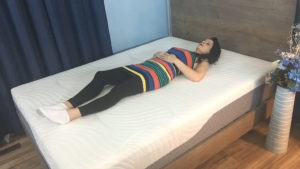 If you find sleeping on your back isn’t a comfortable solution, you may need to place a thin pillow behind your knees. Keep your spine in alignment, and this can be applied to any position you sleep in. So long as you can keep your back, shoulders, hips, and knees straight.
If you find sleeping on your back isn’t a comfortable solution, you may need to place a thin pillow behind your knees. Keep your spine in alignment, and this can be applied to any position you sleep in. So long as you can keep your back, shoulders, hips, and knees straight.
If you can’t find a comfortable position, the problem may be with your mattress.
The springs in older mattresses can come loose over time, becoming uneven and jabbing your body with the ends of springs. Memory foam can lose its form over time, too. If you decide to buy a new mattress, be prepared to try several different types. This will help you to find the one that’s right for your needs.
You may also want to reconsider the pillows you use if you find that you experience difficulty breathing when you sleep. A wedge-shaped pillow beneath your head and shoulders will open up your airways. Easing up your breathing and keeping your body calm and still. Likewise, a pregnancy pillow is a comfy way to keep yourself from rolling over.
Don’t Exercise Late In The Day

A piece of advice that’s bandied about in some circles is that doing your exercise routine at night is the best way to sleep like a newborn. It makes sense on paper that exhausting your body will finally get you to nod off. But while exercise tires your physically it stimulates you mentally. Though your energy will be depleted. Your temperature will be higher and you may find yourself with those dreaded wandering thoughts. So not only will you be more likely to stay awake, but you’ll feel sluggish too.
However, exercise does play a vital role in beating restless sleep. Exercising in the morning or early afternoon will have the same effect on you physically. While giving you enough time to “come down” as the day progresses.
Switch To A Weighted Blanket
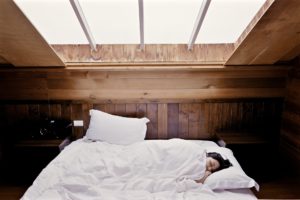
The feeling you get when you’re comfortably squeezed, like in a hug or when you’re sitting in a nice armchair, is called Deep-Pressure Touch. This soothing feeling actually triggers your brain to release chemicals that make your entire body relax. Though there are many on the market with various different features. Anything marketed as a weighted blanket will help you fall asleep much faster and stay asleep for longer.
No matter which of the above changes you choose to make in your life, know that it will take time and practice in order to make them an ongoing habit. Don’t get discouraged if you don’t see immediate results. It could just be a matter of trying something else. But if you find your sleep problems aren’t easily addressed by lifestyle changes, or you find the problems afflicting you during all hours of the day. Talk to a doctor to make sure it isn’t the result of a medical condition.

